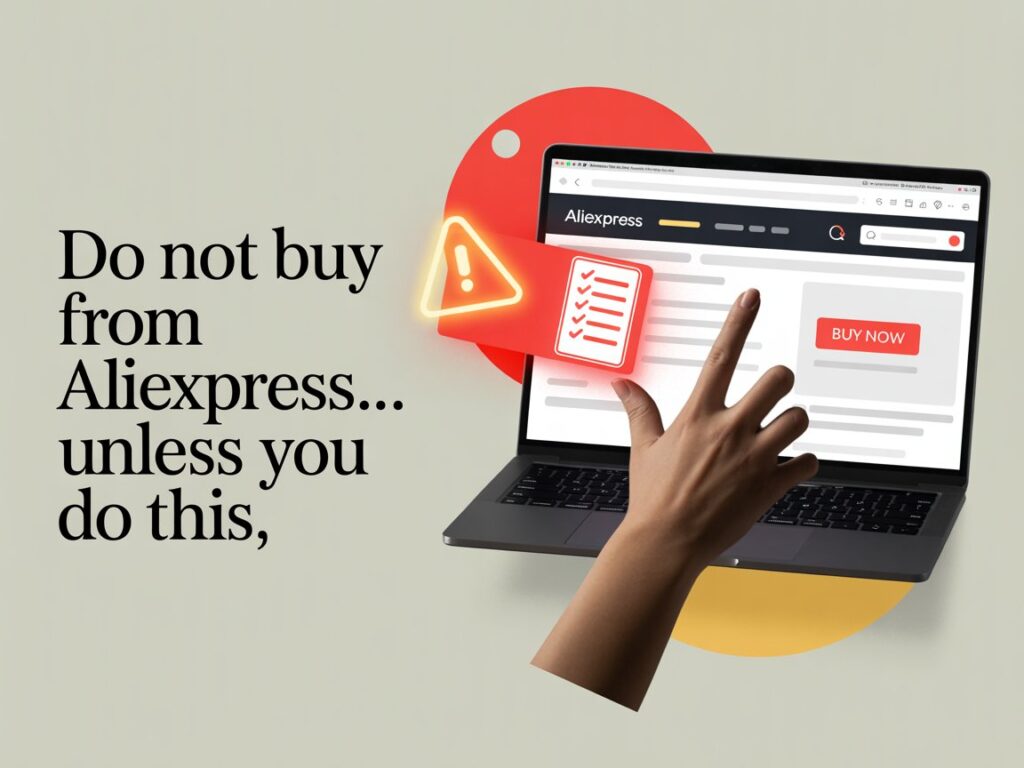
AliExpress has developed a reputation for carrying cheap, low-quality products, leading many potential buyers to wonder: “Is AliExpress safe?” and “Will I get scammed with poor-quality merchandise?” While it’s true that any online marketplace has unscrupulous sellers looking to make a quick profit, AliExpress wouldn’t be successful if it wasn’t a legitimate place to shop online. The key is understanding what you’re getting into and taking proper precautions when shopping on the platform.
What is AliExpress?
AliExpress is an online marketplace owned by the Alibaba Group that allows independent small businesses and factories in China to sell directly to individual customers worldwide. Often called “the eBay of China,” AliExpress offers a massive variety of products spanning over 10,000 categories. Because it’s based in China, where labor costs are significantly lower, products on AliExpress tend to be much cheaper than anywhere else in the world, including the United States.
AliExpress vs. Alibaba: Understanding the Difference
Many people confuse AliExpress with Alibaba since they’re owned by the same parent company, but they serve completely different purposes:
Alibaba
- A directory of Chinese wholesale suppliers
- Helps businesses find manufacturers and factories in Asia
- Not an e-commerce platform or marketplace
- Primarily a searchable database of Chinese manufacturers
- Designed for bulk purchases with minimum order quantities
- Cannot order single units of most products
- Allows product customization for private label selling
- Requires significant upfront investment (often thousands of dollars)
- Offers lower unit prices than AliExpress
- Most correspondence occurs offline
- Requires submitting requests to suppliers for quotes
AliExpress
- Online marketplace for direct consumer purchases
- Set up like eBay for buying from small Chinese businesses
- Allows single-unit purchases
- Products sold “as is” without customization options
- No private labeling capabilities
- Low upfront investment required
- Higher unit prices than bulk Alibaba orders
- No free samples available
- Offers buyer protection program
- All goods shipped from China (long delivery times)
Is AliExpress Safe?
Yes, buying from AliExpress is 100% safe. In fact, shopping on AliExpress is often safer than eBay because of their comprehensive buyer protection program that covers every purchase end-to-end.
AliExpress Buyer Protection Program
AliExpress guarantees that if your product doesn’t arrive on time or as described in the listing, you can get a full refund. This protection is automatically applied to every purchase made directly through AliExpress, regardless of what you buy.
How to Use Buyer Protection:
- Contact AliExpress support to report problems with your order
- The seller is notified and given a chance to resolve the issue
- If the seller won’t help, you can open a dispute
- If the seller doesn’t respond to the dispute, AliExpress returns your money
- Once resolved in your favor, refunds typically arrive within two weeks
While the dispute process can sometimes be lengthy, you are completely protected from getting scammed or receiving junk merchandise.
Is AliExpress Legitimate?
AliExpress is absolutely legitimate. It’s a marketplace owned by the Alibaba Group, a publicly traded company and one of the largest e-commerce companies in the world. The main reason people question its legitimacy stems from unrealistic expectations.
Quality Control Differences
When you buy from a retail store in the US, every product goes through rigorous quality control before reaching the shelf. With AliExpress, you’re often buying directly from the factory with minimal quality control. This means:
- Product quality can be inconsistent
- No recognizable brand names
- Different quality standards than expected
- Possible counterfeit or knockoff products
- Why AliExpress dropshipping isn’t ideal for long-term business
Despite these challenges, there are many great products available on AliExpress—you just need to know how to find them.
Electronics on AliExpress
While buyer protection makes it technically safe to buy electronics on AliExpress, the overall quality of software and hardware will typically be lower than US or European standards. Chinese electronics often have:
- Lower quality standards
- Buggy software
- Hardware not designed for longevity
- Shorter lifespan than branded alternatives
Step-by-Step Guide to Shopping Safely on AliExpress
Step 1: Create an Account
- Go to aliexpress.com
- Click the sign-up button
- Confirm your email address
- Look for new user coupons (often $2-5 off)
Step 2: Smart Shopping Practices
Before making any purchase, evaluate sellers using these criteria:
Seller Statistics to Check:
- Feedback Rating: Look for sellers with 4.5+ average ratings
- Order Volume: Ensure the seller has shipped at least 100 orders (more for expensive items)
- Product Reviews: Products should have at least 100 reviews (depending on price point)
- Years in Business: Prefer established sellers
The more expensive the item, the more stringent your seller requirements should be.
Step 3: Check Trademark Status
To avoid legal troubles when buying (especially for resale):
- Visit the USPTO trademark database
- Search for the brand name
- If it appears, the brand is trademarked
- Most name-brand merchandise (Nike, Apple, Gucci) on AliExpress is counterfeit
- For obscure brands, verify trademark status before reselling
Step 4: Verify Delivery Times
- Most products ship from China
- Rarely, items may ship from local distributors in your country
- Shipping times range from 2 weeks to 2 months
- Faster shipping options cost more
- Buyer protection lasts until the final estimated delivery date
Step 5: Choose Safe Payment Methods
AliExpress accepts:
- Credit Cards: Recommended for points and dispute options
- PayPal: Offers additional buyer protection
- iDeal: Less common payment method
Both credit cards and PayPal provide additional protection layers beyond AliExpress’s buyer protection program.
Step 6: Inspect Orders Immediately
This is the most critical step:
- Check your order as soon as it arrives
- Examine products thoroughly for quality issues
- File disputes immediately if problems are found
- Remember: buyer protection only lasts during the delivery window
- If items arrive on the last day of the delivery window, you must file disputes that same day
Managing Expectations
AliExpress’s poor reputation largely stems from unrealistic expectations. Here’s what to expect:
What AliExpress Is Good For:
- Affordable, unbranded products
- Testing product ideas with low investment
- Finding unique items not available elsewhere
- Bulk buying for resale (in small quantities)
What AliExpress Is Not Good For:
- High-quality, branded merchandise
- Items needed quickly
- Products requiring customer service
- Long-term business models requiring consistent quality
Final Tips for Success
- Trust Your Instincts: If something sounds too good to be true, it probably is
- Start Small: Begin with inexpensive items to test sellers
- Read Reviews Carefully: Look for detailed reviews with photos
- Be Patient: Long shipping times are the norm
- Keep Records: Save all communication and order details
- Act Quickly: File disputes immediately when problems arise
Conclusion
Shopping on AliExpress can be completely safe and rewarding when you understand the platform and follow proper precautions. The combination of AliExpress buyer protection and credit card/PayPal protection means there’s practically zero chance of losing your money to outright fraud.
However, quality control can be inconsistent, and you should adjust your expectations accordingly. Think of AliExpress as similar to eBay, except all products are unbranded and shipped from China. With the right approach and realistic expectations, you can find great deals and unique products while shopping safely on AliExpress.
Remember: the key to success on AliExpress is patience, careful seller evaluation, and immediate action when problems arise. Follow these guidelines, and you’ll be able to shop confidently on one of the world’s largest online marketplaces.



